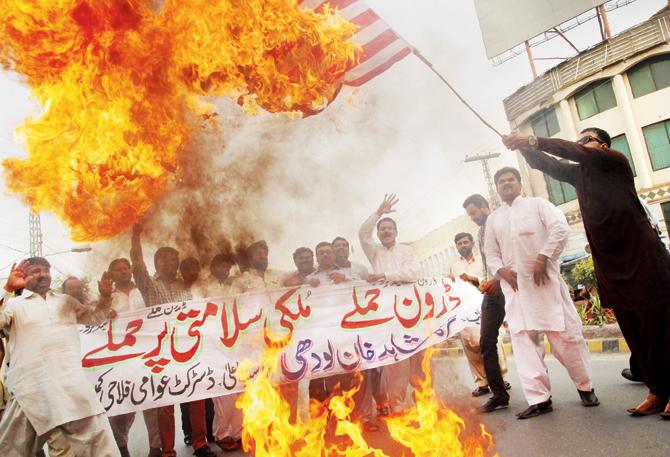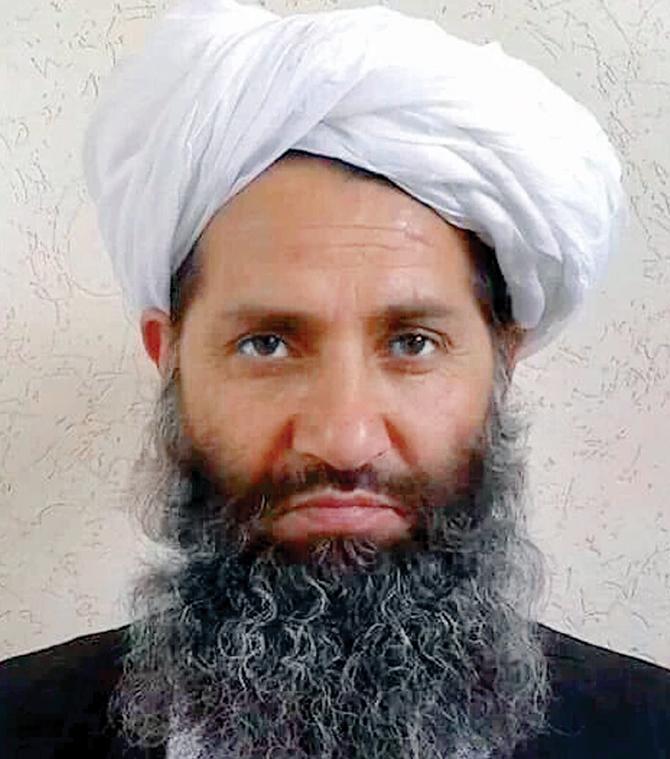The terror group decided to make Haibatullah Akhundzada their leader in a series of meetings held at different locations in fear of another drone strike

Kabul: The Afghan Taliban yesterday announced Haibatullah Akhundzada as their new chief, elevating a low-profile religious figure after officially confirming the death of Mullah Mansour in a US drone strike.
ADVERTISEMENT

A Pakistani demonstrator holds a burning US flag as others shout slogans during a protest in Multan against the drone strike. Pic/AFP
The Taliban’s supreme council held emergency meetings that began on Sunday in southwest Pakistan to find a unifying figure for the leadership post. Taliban sources said the council members were lying low and constantly changing the venue of their meetings to avoid new potential air strikes.
Appointment
Akhundzada, who was one of the two deputies of Mansour, is seen as a unifying figure in an increasingly fragmented militant movement, though it remains unclear whether he will be in favour of talks aimed at ending the 15-year insurgency.

Mullah Haibatullah Akhundzada. Pic/AFP
“Haibatullah Akhundzada has been appointed as the new leader of the Islamic Emirate (Taliban) after a unanimous agreement in the shura (supreme council), and all the members of shura pledged allegiance to him,” the insurgents said in a statement. It added that Sirajuddin Haqqani, an implacable foe of US forces, and Mullah Yakoub, the son of Taliban founder Mullah Omar, were appointed his deputies.
What might happen?
“The status quo remains unchanged” after Akhundzada’s appointment, Taliban expert Rahimullah Yousafzai said. “I don’t foresee any shift from Mansour’s policies. He (Akhundzada) is unlikely to negotiate with the Afghan government.” Other observers say that Akhundzada, who hails from Kandahar, is seen as more of a religious leader than a military commander. “Even if he favours peace talks, he is unlikely to proceed without consensus within the supreme council” where many vehemently oppose negotiations, said analyst Amir Rana.
 Subscribe today by clicking the link and stay updated with the latest news!" Click here!
Subscribe today by clicking the link and stay updated with the latest news!" Click here!






